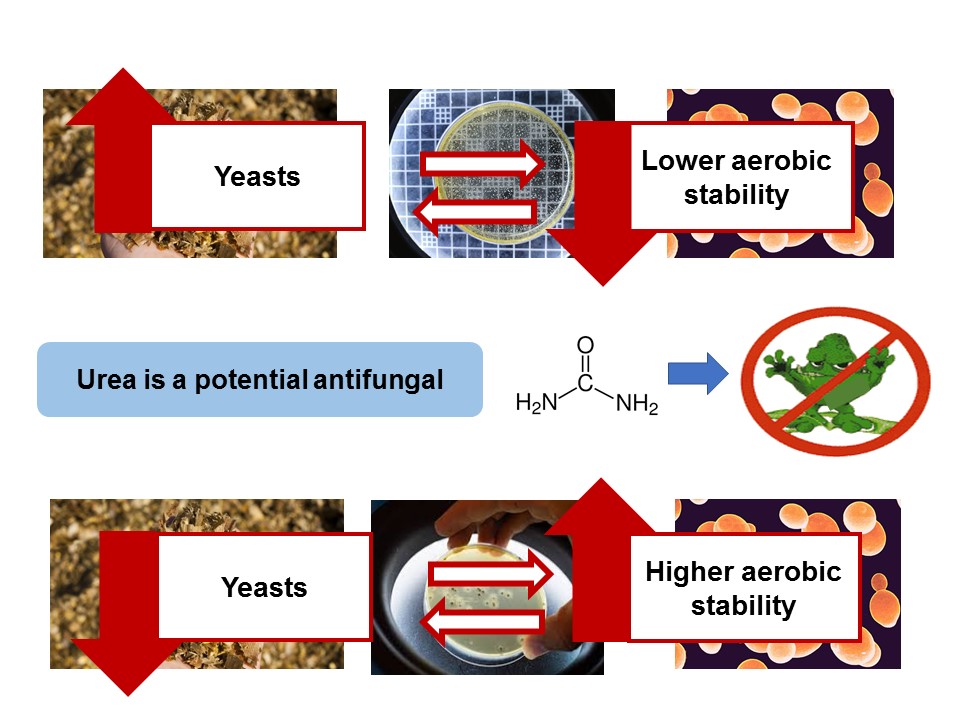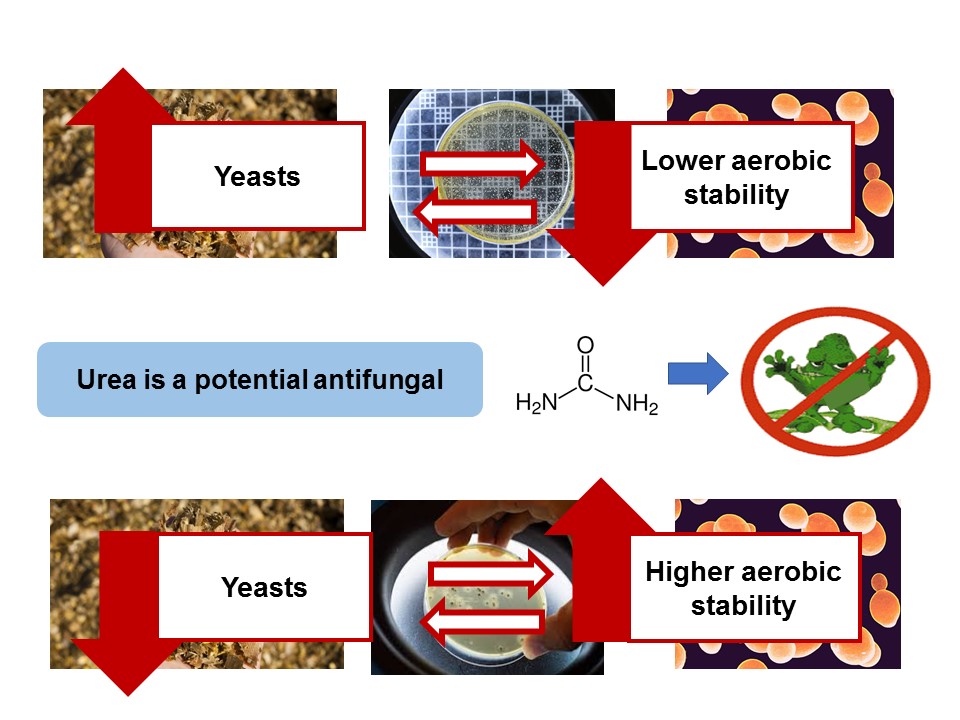Effect of urea on gas and effluent losses, microbial populations, aerobic stability and chemical compositivo of corn (Zea mays L.) silage
DOI:
https://doi.org/10.48162/rev.39.030Keywords:
lactic acid, lactic acid bacteria, silage additives, yeasts, Zea mays L.Abstract

We evaluated the effects of urea addition on gas and effluent losses, fermentation profile, microbial populations, aerobic stability and chemical composition of corn silages. A completely randomised design with five levels of urea (0, 0.5, 1.0, 1.5, and 2.0% based on dry matter) and five replicates was used. A decreasing linear effect of urea levels on effluent losses in corn silages was observed. In parallel, an increasing linear effect of urea levels on pH, increasing from 3.49 to 4.12 in silages without urea in relation to silages with the maximum urea level, was also observed. Urea addition improved the aerobic stability of the silages, with 62 h for the silages without urea and from 90 to >96 h for the silages with urea. Based on the results of the principal components, two groups (I and II) could be distinguished. The most discriminating variables in group I were dry matter (-0.9), pH (-1.2) and lactic acid bacteria (-0.9), while in group II, effluent losses (1.0), ethanol (1.0), acetic acid (0.8) and gas losses (0.8) were most important. The use of urea at inclusion levels of around 2% in corn silage reduced gas losses, improved the nutritive value and promote the aerobic stability of silages.
Highlights:
- The addition of urea in the corn silages increased the pH values from 3.49 (control) to 4.12 (2% of urea DM).
- The use of urea improved chemical composition of corn silages.
- The addition of urea reduced the moulds and yeast populations in the corn silages after exposure to air.
- Urea addition improved the aerobic stability of the corn silages.
Downloads

Downloads
Published
How to Cite
Issue
Section
License

This work is licensed under a Creative Commons Attribution-NonCommercial-ShareAlike 3.0 Unported License.
Aquellos autores/as que tengan publicaciones con esta revista, aceptan las Políticas Editoriales.











.jpg)




